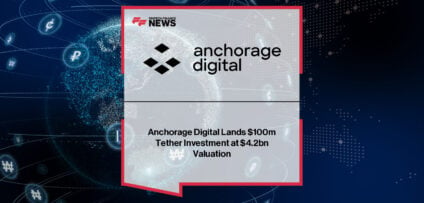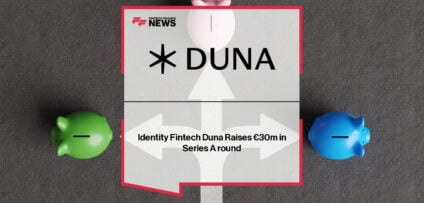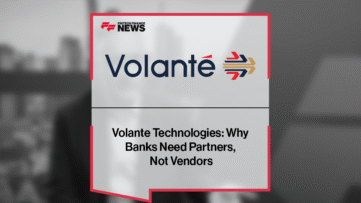Breaking News

What is the future for fintech?
Fintech is known as the niche that is revolutionizing the industry. Using different services online,
with a single click or a swipe is becoming easier than ever before. The industry largely benefits
from technological advancement, evident globally, as well as the increasing demand for
digitalized services from the youth. However, there are still some areas that need to adapt to the
global trend.
What is the significance of fintech today?
Fintech is a term, formed from the combination of two other words – financial and technology.
The phenomenon is not particularly new since it has gone a massive transformation from the
second half of the 20th century. It essentially came with the birth of credit card and other
cashless banking and financial services.
However, the modern-day industry is quite a bit different. Financial services are more important
to young people than ever before and technology is bringing innovation and change to our
everyday lives. Today, almost everyone uses fintech in different ways. Individuals, families,
commercial entities or governmental services perform their payments or other financial
operations through digitalized platforms.
More and more companies in the field of entertainment decide to use fintech-driven digital
platforms to perform payment operations. Businesses like NowEscape and others alike that
provide booking services to many different types of entertainment prefer using modern-day,
smooth and simple ways of sales over some outdated methods.
Moreover, the youngest and the most technologically advanced part of our societies, Generation
Z-ers have a bigger demand for mobile services, particularly about a variety of financial
operations. This comes without a surprise since members of this group represent the biggest
spenders we have ever seen. Their purchasing power is estimated at $140 billion in the United
States alone.
Some of the recently developed areas of fintech include fully digitalized banking services and
neobanks, money landing operations, fast payments as well as digitalized insurance policies. All
of them are on the path to further expand and innovate even more. The number of fintech users
is increasing so fast that some even believe that the cashless future might actually be around
the corner.
Another significant factor worth mentioning is how fintech benefits those without any physical
access to financial services. This is quite visible in countries like India and Kenya, where fintech
represents the majority of the banking market. Without any physical bank branches in some
rural areas, people receive much-needed services and perform different operations through
their mobile phones or online.
The future of fintech: what is the way to go?
Fintech is naturally, gradually developing in almost every major field worldwide. We have
already come to realize that this is the digital future of tomorrow. Banking and financial
industries keep introducing innovation, advancing their already-existing mobile apps or online
payment systems. It is safe to say that every major bank in 2020 has a mobile banking app,
offering a whole range of financial services to its customers conveniently. It also is expanding in
the insurance field. Some major insurance corporations are working to launch digital products in
the nearest future. But if fintech already covers so much, in what direction should it develop?
The truth is that fintech is not yet a global phenomenon. It now is mainly present in developed
nations while substituting traditional banking and financial services in developing and emerging
economies. However, the picture is different elsewhere. According to the World Bank, only
49,7% of the global population had access to the internet in 2017. This leaves more than half of
7.7 billion people worldwide without any connection. Thus, technological advancement has to
reach some of the less-developed areas around the globe before fintech becomes relevant to
them. This is a fast process and will not take as long. Moreover, examples of Kenya and India
prove that increased access to the internet and fintech revolution can go hand in hand. This
boosts the overall use of financial services and boosts the economy.
One other thing is that what we already have today is changing fast and the industry should not
fail to keep up with further development. Generation Z-ers have higher standards and demands
for digital services than any other social group. If one company introduces innovation that is
completely new to the public, the others should follow its footsteps. Otherwise, young people will
easily change their service provider for a better one without any hard feelings. What they value
in fintech are its transparency, simplicity and flexibility. Thus, the industry should do everything
to meet every new demand youngsters might have, simply because they are the future of
fintech.
The last niche that is quite rarely mentioned covers luxury products and services. When it
comes to purchasing or maintaining super-expensive items, such as superyachts or private jets,
their owners prefer to stick with the traditional means of accounting. As a result, many people
representing various different services and companies have to work with a whole bunch of
physical documents and receipts. At a glance, many people trust individuals more than
technology. This is particularly visible with the items of luxury. However, the truth is that fintech
can be more efficient, accurate and beneficial in this multi-billion dollar niche as well. It offers
better transparency and can potentially be quite cost-effective for e.g. private jet owners. If they
can see the live updates on how their money is being spent on maintaining the jet, the fears will
fade away.
Fintech already is a well-established concept on the market. However, there is still a lot more to
be explored. Whether it is upgrading already-existing services or entering the luxury market,
fintech is the future and it should gradually adapt to the market of the future.
- Addresscloud Appoints Clair Bush as Fractional CMO to Support Scalable Delivery of Geospatial Risk Intelligence Read more
- Banking Transformation Summit | 19-20th May | Tobacco Dock, London Read more
- ComplyAdvantage: Why Compliance Still Needs the Human Touch Read more
- ING: Turning AI Pilots Into Production Read more
- Volante Technologies: Why Banks Need Partners, Not Vendors Read more













